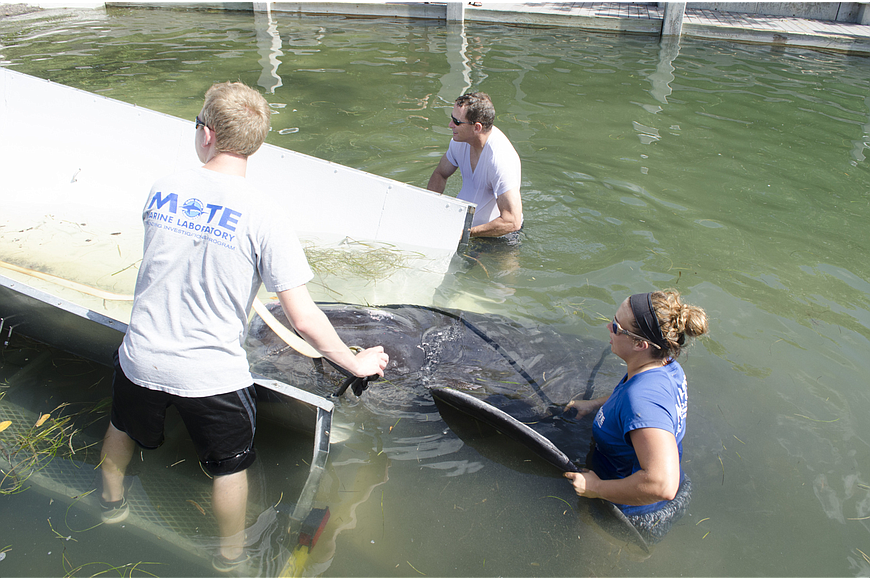- April 26, 2025
-
-
Loading

Loading

A rare whale was found dead on Siesta Key before 4 a.m. on June 23, washed up in the surf.
The Sheriff’s Office, working with teams at Mote Marine Laboratory, removed the whale shortly after 9 the same morning. The whale's body was brought to Mote, where researchers performed a necropsy to determine a cause of death. However, scientists warned the tests may not be able to provide clear answers about what happened.
"We want to hopefully figure out why the animal stranded, why it died, but in addition to that, we learn a lot of different things about it’s life history," said Gretchen Lovewell, Stranding Investigations Program Manager at Mote, following the incident. While unfortunate, the stranded animal provides an opportunity for scientists to study it in a way they wouldn't be able to otherwise, she said.
The pilot whale, estimated to be about 15 feet long, is typically an animal that stays about 100 miles from the coast, in deeper waters. Mote scientists were unsure what could have led to its beaching on Siesta Key, but know that it’s very rare to see any whales beach on Florida's west coast, because it's difficult to get to the depths they're so accustomed to on this part of the coast.
Lovewell said most often when pilot whales are seen on area beaches, they are not alone, as the species is prone to "mass strandings." The last stranding like that Lovewell could remember was in 2014, and more recently, a mass stranding of killer whales in New Zealand.
"We’re on high alert right now to be sure that there aren’t other animals out there about to hit our beaches," she said after the incident. "We'll be hyper-vigilant."